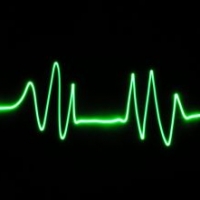Heart-Monitoring Smart Devices Missing a Beat

Smartbands and smartphones are doing incredible things in today’s world of advancing technology. One trait of smart tech touted by fitness junkies is the ability for the fitness tracker app on your smart device to measure your heart rate or pulse.
However, a recent study by CNET reporter Sharon Profis revealed that most of the heart rate monitoring functions for smart devices are missing a beat—literally. Some devices are unable to find a pulse when the heart rate reaches a certain range.
The good news is that most wrist-based smart devices or other heart monitoring smart technologies do a really good job of measuring your resting heart rate. This is perfect for the casual user who only wants to know his usual heart rate. However, for athletes or anyone who is looking to get a little sweaty, the application becomes more or less worthless.
Nearly all smartbands worn on the wrist and smart devices like the Samsung Galaxy S5, which uses a fingertip sensor, require the user to be still and avoid motion for the app to get an accurate reading of the pulse.
As you can imagine, the need to be motionless can really dampen the functionality and allure for these fitness-promoting devices. In fairness, smart devices that incorporate chest strap heart rate components fair really well, even at elevated heart rates. The catch is that chest straps that monitor the heart rate have been around far longer than smartbands and other smart devices.
In response to an ask for comment from CNET, Samsung responded: "To ensure the most accurate reading possible on our devices, we recommend sitting still during measurement or adjusting the device sensor so it is close to your veins."
But as an article on Forbes points out, it's not just heartbeats that wearable tech is missing. It is a lack of meaning and direction. As writer Patrick Moorhead questions, what use is having a smartwatch that can accurately tell us our heart rates when swimming or jogging if we don't know what to make of the data we are given?
Moorhead isn't being unreasonable in his desire to have wearable tech be more personalized, with heart monitors that can tell you what your heart rate means for you as you work out and can give some perspective about maintaining health and improving athletic ability. However, CNET's Sharon Profis may have uncovered the real issue: Before we focus on anything else, heart monitor functions on wearable tech need to work without missing a beat.

